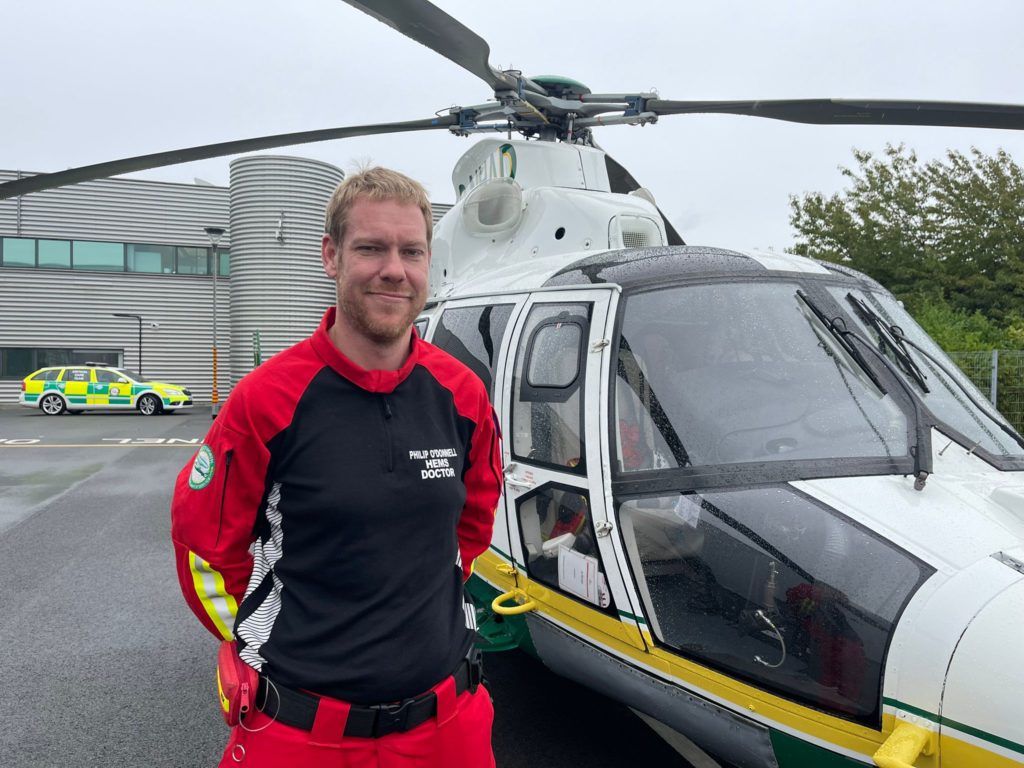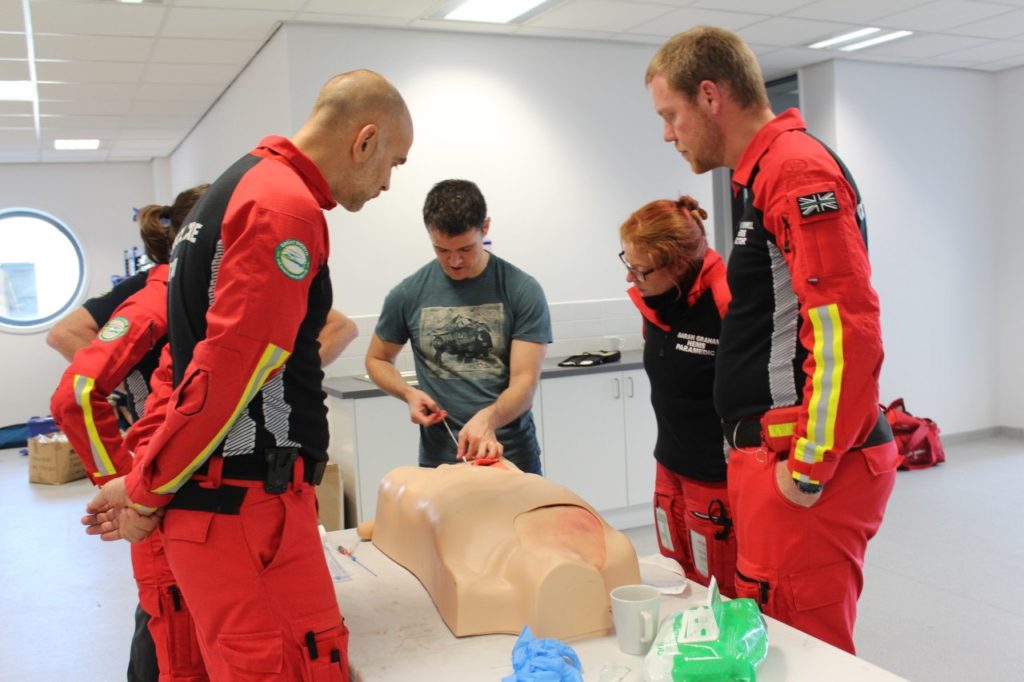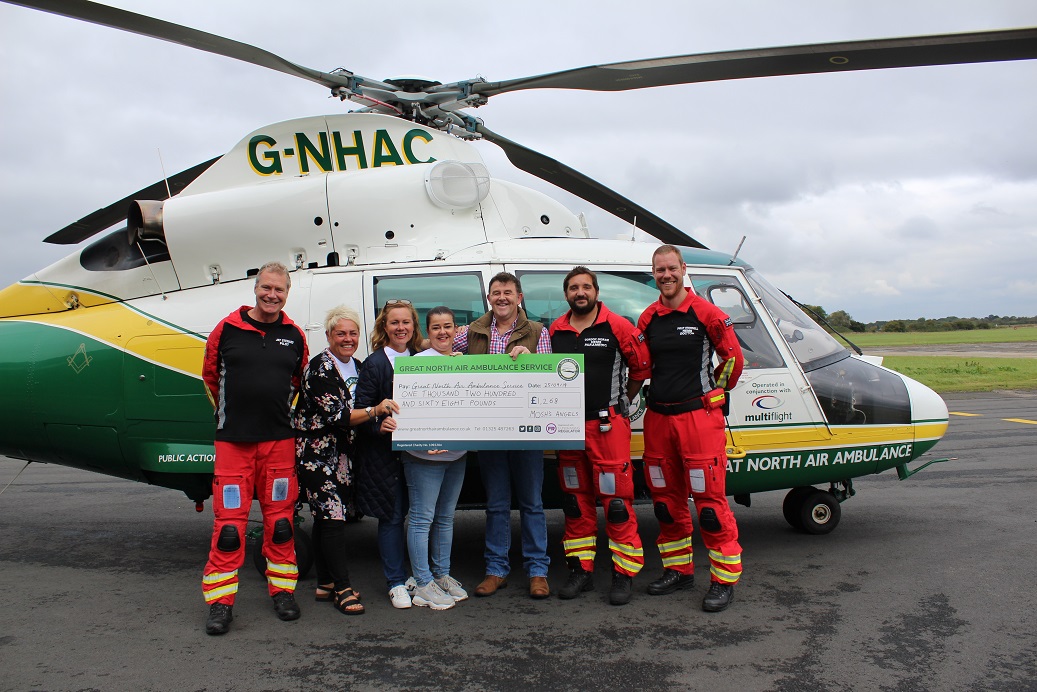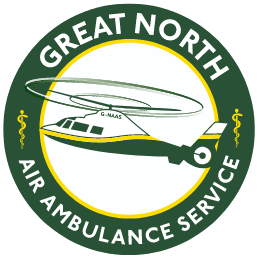“The worst thing about my job outside of GNAAS is probably having to deal with violence and aggression in hospital.”
Phil O’Donnell, from Hull, has been a critical care doctor with the Great North Air Ambulance Service (GNAAS) for over eight years.
Holly Taylor caught up with Phil to find out more about his life outside of the charity.
Where do you work outside of GNAAS and what is your role?
Outside of the charity, I am a Consultant in Emergency Medicine at South Tyneside and Sunderland Emergency Department and I have worked there since 2018.


Talk me through an average day in your consultant role?
So, I usually start around 8am and will get a hand-over from the night shift staff. My role is to supervise the junior doctors and practitioners (there are usually 12 of them) and then to see patients, too.
I have to be available at all times for emergencies around the hospital and be ready for any pre-alerts which will come through the red phone in A&E.
How do you manage your time working between GNAAS and your other job?
It really isn’t easy to manage my time. I usually do a GNAAS shift every 10 days and the rest of my work time is spent in the hospital.
Did you always know you wanted to become a doctor?
No! Both of my parents were in the police and growing up I always thought I would follow in their footsteps. I was actually a Special Constable for sixteen years then I was diagnosed with diabetes.
I then decided healthcare was the route I wanted to go down. I had been a member of St John’s Ambulance since I was 12 and after talking to various different people I thought, why not a doctor? I then went on to Hull York Medical School and the rest is history.


Why did you choose your field of specialty?
It’s interesting and varied and more often than not, you can see those real immediate improvements in patients.
What would you have become if you weren’t a doctor?
A pilot!
How is GNAAS different from your other work?
Well, I get to fly which is always amazing and we generally go to the sickest and most injured patients in the region.
What’s the best/worst thing about your job?
The best thing is being able to intervene with patients at the very first instance and make a difference.
The worst thing about my job outside of GNAAS is probably dealing with violence and aggression in hospital.


Do you have any standout jobs from either of your roles? What happened?
One of my first jobs at GNAAS was a road traffic collision involving a pedestrian and a car. He had a huge chest injury, and I just didn’t think he was going to survive but he did.
How do you cope with difficult jobs?
Talking to my colleagues and being distracted by friends and family.
What do you like to do outside of work?
Outside of work I spend time with my young children, and I am Regional Youth Manager on a voluntary basis for St John’s Ambulance in the North Region.



